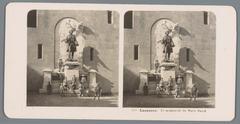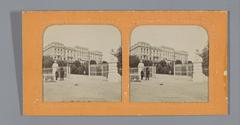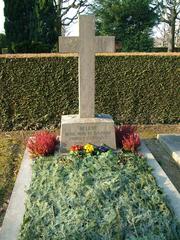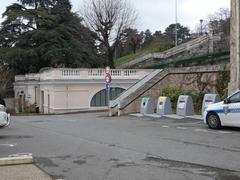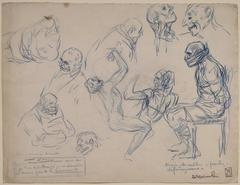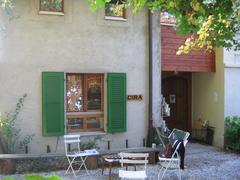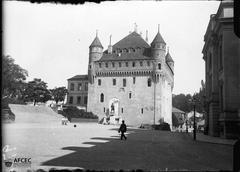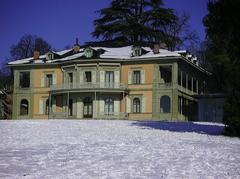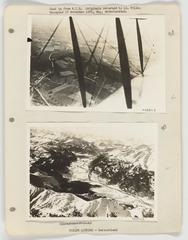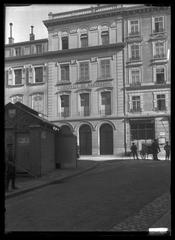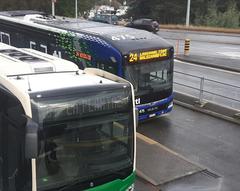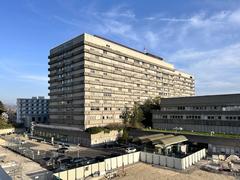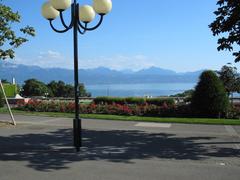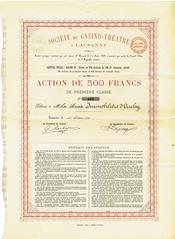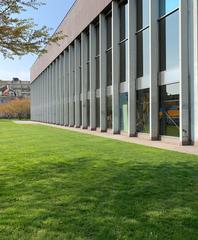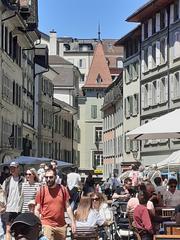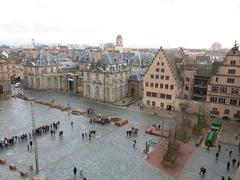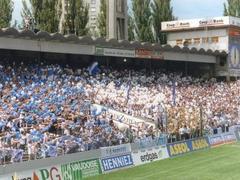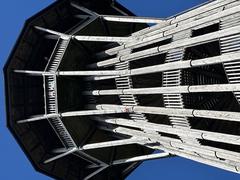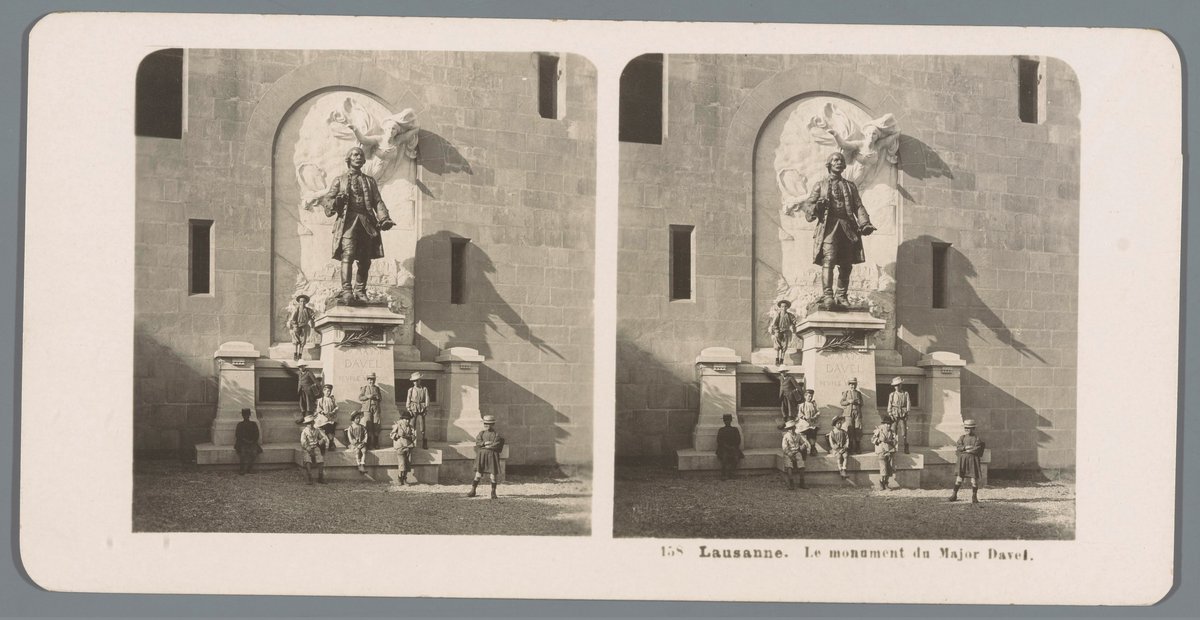
Major Abraham Davel in Lausanne, Switzerland: Visiting Hours, Tickets, and Historical Site Guide
Date: 03/07/2025
Introduction to Major Abraham Davel and His Significance in Lausanne, Switzerland
Major Abraham Davel is a central figure in the history of the canton of Vaud, Switzerland, renowned for his valiant—if ultimately tragic—attempt to secure the region’s independence from Bernese rule in the early 18th century. Born in 1670, Davel was deeply shaped by the political and religious tensions of his era. His unwavering sense of justice and faith culminated in the 1723 uprising, when he led hundreds into Lausanne with a manifesto calling for Vaudois autonomy. Though his rebellion was quickly suppressed and he was executed on April 24, 1723, Davel’s legacy endures as a symbol of resistance, justice, and regional identity.
Today, visitors to Lausanne and Vaud can explore memorials and monuments dedicated to Davel’s memory, including the lakeside Memorial du Major Davel at Vidy, the Monument de Davel in Cully, and commemorative sites in his birthplace, Morrens. These landmarks not only recount the dramatic events of Davel’s life and death but also provide a window into Vaud’s struggle for autonomy and the ongoing interpretation of Davel as both martyr and hero. Whether you’re a history enthusiast or a curious traveler, this guide offers detailed information on sites, visiting hours, tickets, guided tours, accessibility, and annual commemorations to help you connect with Lausanne’s rich heritage.
For authoritative context and updates, see sources such as MCBA, Le Courrier, and wikivaud.ch.
Table of Contents
- Introduction to Major Abraham Davel and his significance
- Early Life and Military Career
- The Political Climate in Vaud under Bernese Rule
- The 1723 Uprising: Davel’s March on Lausanne
- Arrest, Trial, and Execution
- Major Davel Memorials in Vaud and Lausanne
- Annual Events and Commemorations
- Visitor Information
- FAQ
- Conclusion and Visitor Recommendations
- References
Early Life and Military Career
Jean-Daniel-Abraham Davel was born in 1670 in Morrens, Vaud. Raised during a time of ongoing political and cultural suppression by the Bernese, Davel’s early years fostered in him a sense of injustice and a longing for autonomy. He developed a reputation for integrity and discipline as he advanced through the ranks of the Vaud militia, ultimately becoming a major. His military career included service in Piedmont, Holland, and France, as well as participation in the Second Villmergen War in Switzerland in 1712. His devout Protestant faith and reputation for fairness made him a respected leader (wikivaud.ch, Wikipedia).
The Political Climate in Vaud under Bernese Rule
By the early 18th century, Vaud had been under Bernese rule for nearly two centuries, following its annexation in 1536. The Bernese authorities, German-speaking Protestants, imposed heavy taxes, restricted local governance, and suppressed the French language and culture, leading to persistent resentment among the Vaudois. Davel became increasingly outspoken, believing the Bernese regime to be morally and spiritually corrupt and feeling divinely called to act. His convictions set him apart from other local leaders, many of whom were more cautious or resigned (MCBA).
The 1723 Uprising: Davel’s March on Lausanne
On March 31, 1723, Davel gathered 500–600 men in Cully, under the pretense of a military parade (notrehistoire.ch). With Bernese officials absent, he led his men into Lausanne, where he presented a manifesto demanding Vaudois independence to the city council. However, lacking political support and fearing Bernese reprisals, the local authorities quickly alerted Bern. Davel’s hopes for a mass uprising were dashed as his followers dispersed (MCBA).
Arrest, Trial, and Execution
Davel was arrested on April 1, 1723. Despite torture, he refused to recant his beliefs, asserting his actions were divinely inspired. He was sentenced to death by a tribunal of Vaudois elites and executed by decapitation at Vidy, near Lausanne, on April 24, 1723 (Le Courrier). His final moments were marked by a moving declaration of willingness to die for his people’s freedom.
Over time, Davel’s image shifted from that of an isolated rebel to a martyr and symbol of Vaudois identity, inspiring later generations in the movement for independence (Wikipedia).
Major Davel Memorials in Vaud and Lausanne
Monument de Davel, Cully
- Location: Central Cully
- Description: An obelisk erected in 1841 marks the site where Davel assembled his troops. A sealed iron box containing interrogation records is embedded in the monument.
- Visiting Hours: Outdoor, accessible year-round during daylight.
- Accessibility: Wheelchair accessible.
- Nearby Attractions: Lakeside promenade, Lavaux vineyards (wikivaud.ch).
Memorial du Major Davel in Vidy, Lausanne
- Location: Louis Bourget Park, Vidy, Lausanne
- Description: A tranquil stone stele marks the site of Davel’s execution, inscribed with “Here Davel gave his life for his country, 24 April 1723.”
- Visiting Hours: Outdoor, accessible year-round, park generally open dawn to dusk.
- Accessibility: Wheelchair accessible, paved paths.
- Nearby Attractions: Lake Geneva, Olympic Museum, Roman ruins (Le Courrier).
Morrens – Davel’s Birthplace
- Description: Guided tours occasionally offered, covering the medieval church, château, and the curacy where Davel lived.
- Booking: Check local tourism sites (uplausanne.ch).
Additional Sites in Lausanne
- Statue of Major Davel at Place du Château: Inaugurated in 1898, this bronze statue is a prominent city landmark.
- Lausanne Cathedral: Features stained-glass commemorating Davel.
- Parc Bourget: Houses an additional commemorative stele.
- Hôtel de Ville: Historical site where Davel presented his manifesto (Lausanne Tourism Office).
Annual Events and Commemorations
- April 24th Procession: Organized by the Vaud section of the Swiss fraternity Zofingia, retracing Davel’s last journey from Château Saint-Maire to Vidy.
- Cultural Activities: Lectures, school programs, and public ceremonies honor Davel’s legacy.
- Tricentennial (2023): Recent commemorations included an opera premiere and new publications (Le Courrier).
Visitor Information
Hours, Tickets, and Accessibility
- Outdoor Sites: All major Davel monuments (Cully, Vidy, Place du Château) are open year-round, typically from dawn to dusk, and are free to visit.
- Indoor Sites: Lausanne Cathedral usually open from 9:00 AM to 5:00 PM; entry is free, guided tours may require a fee.
- Guided Tours: Available for Morrens and as part of broader historical walks in Lausanne; check Mémoire de Lausanne and Lausanne Tourism Office.
- Accessibility: Most sites are wheelchair-friendly, with paved paths and nearby amenities.
Getting There
- Public Transport: Lausanne’s Metro Line M2 and several bus lines serve the main sites. Cully is accessible by train from Lausanne.
- Parking: Available near major parks and in city centers.
Nearby Attractions
- Lake Geneva Shoreline: Ideal for walks, picnics, and photography.
- Olympic Museum: Offers exhibitions on sports history near Vidy.
- Lavaux Vineyards: UNESCO World Heritage site accessible from Cully.
Visitor Tips
- Best Time to Visit: Spring and summer offer the best weather and coincide with major events.
- Language: French is predominant; many plaques include English.
- Respectful Conduct: Maintain quiet and respect, especially at memorials and during commemorations.
- Photography: Allowed outdoors; check restrictions at indoor sites.
Frequently Asked Questions (FAQ)
Q: What are the opening hours for Major Davel memorials?
A: Outdoor sites are accessible year-round, typically from dawn to dusk.
Q: Is there an entrance fee?
A: No, all major outdoor Davel sites are free to visit. Some guided tours may charge a fee.
Q: Are guided tours available?
A: Yes, especially in Morrens and as part of Lausanne’s historical walking tours.
Q: How do I reach the Vidy memorial?
A: Take bus line 21 to ‘Lausanne, Rte de Vidy,’ then walk five minutes to the site.
Q: Are the sites accessible for visitors with mobility issues?
A: Yes, most memorials and parks have paved, wheelchair-accessible paths.
Conclusion and Visitor Recommendations
Visiting the Major Abraham Davel memorials and historical sites in Lausanne and Vaud is a profound way to engage with a pivotal chapter of Swiss history. The sites—freely accessible and often set in scenic surroundings—invite reflection on themes of liberty, resistance, and the enduring Vaudois spirit. Annual events, such as the April 24th procession, and the presence of guided walking tours enrich the visitor experience. Make the most of your visit by exploring related attractions like the Olympic Museum, Lausanne Cathedral, and Lavaux vineyards. Digital resources, including the Audiala app, offer additional content and virtual tours.
For planning and up-to-date information, consult the Lausanne Tourism Office, Mémoire de Lausanne, and Le Courrier.
References
- MCBA – The Execution of Major Davel
- wikivaud.ch – Major Davel: His Life in Service of Vaudois Independence
- Le Courrier – Major Davel: Reality and Myth
- Lausanne Tourism Office – Major Davel
- Mémoire de Lausanne – Tracing Major Davel in Lausanne
- notrehistoire.ch – Davel’s March
- uplausanne.ch – Morrens Tour
- Lausanne: Top Things to Do (Lonely Planet)
